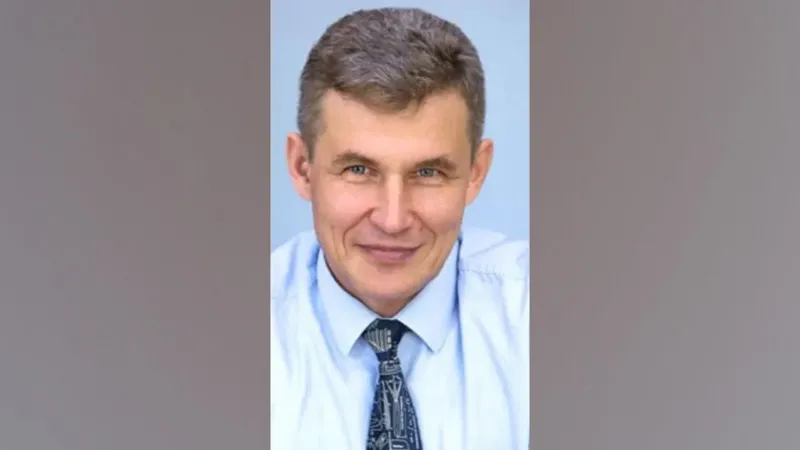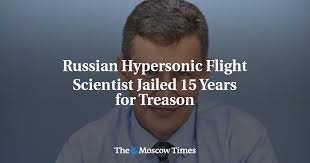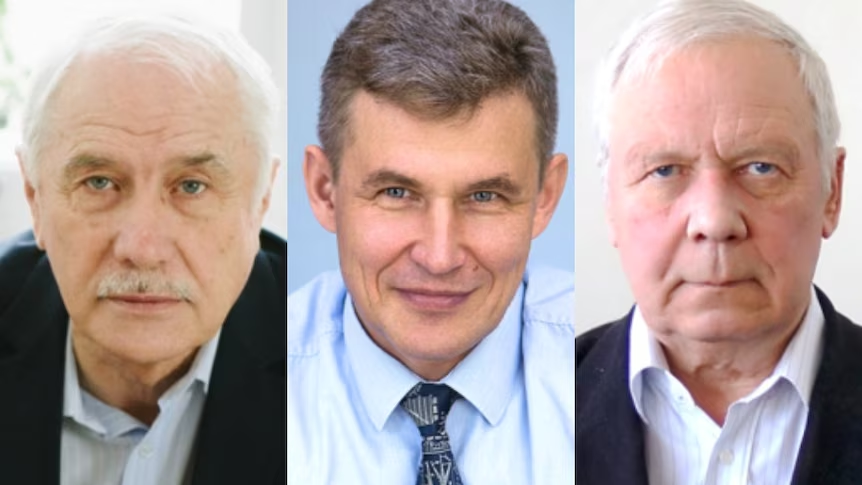In a significant development within Russia’s scientific community, Alexander Shiplyak, a prominent Russian scientist specialising in hypersonic technology, has been sentenced to 15 years in a high-security penal colony on charges of treason. The case is the latest in a series of arrests involving Russian experts linked to sensitive research areas, particularly those relating to advanced military technologies such as hypersonic missiles.
Who is Alexander Shiplyak?
Alexander Shiplyak, 57, was widely regarded as one of Russia’s leading experts in hypersonic technology. At the time of his arrest in August 2022, he served as the director of the Institute of Theoretical and Applied Mechanics, a research institute under the Siberian Branch of the Russian Academy of Sciences. Known for his scholarly contributions to the field, he has authored numerous papers on hypersonic flight – a cutting-edge area of research critical to the development of next-generation military weapons.

Since hypersonic missiles are capable of reaching speeds of up to five times the speed of sound and can maneuver in mid-flight, they pose a tough challenge to modern air defense systems. Due to their ability to evade interception, these weapons have been at the forefront of defense research, making any related intelligence a highly sensitive matter for national security.
Charges and closed-door trial
According to Russian news agency TASS, Shtyuk was charged with sharing state secrets related to hypersonic technology with a foreign power, a charge he has consistently denied. While details of the trial have been kept secret due to its confidential nature, reports suggest that Shtyuk was accused of leaking sensitive information to China. His trial, which was conducted behind closed doors, resulted in a guilty verdict, resulting in a 15-year prison sentence. He is now detained in a high-security penal colony where he faces a long term imprisonment for what the state sees as a serious breach of national trust.
Pattern of arrests
Shpiluk’s arrest is not an isolated incident but is part of a wider trend in which a number of Russian scientists involved in military research have been detained in recent years on charges of treason. Since 2015, at least a dozen scientists associated with hypersonic technology or institutions involved in such research have faced similar charges. A lack of transparency in these cases has made it difficult to ascertain the veracity of the charges or the nature of the evidence presented against them.

Three of the scientists arrested in the past few years have died, one of whom reportedly died in hospital after suffering from cancer shortly after being detained. The arrests have raised concerns within the Russian scientific community about the increased risks of collaborating internationally or participating in global scientific discussion, which is often seen as normal professional conduct.
Institute response
Following the arrests, including Shtyuk’s, his institute, the Institute of Theoretical and Applied Mechanics, published an open letter defending its staff. The letter, which was later deleted, argued that the detained scientists were simply engaged in routine scientific activities – such as attending international conferences and publishing in academic journals – and suggested that these actions were being misinterpreted as acts of treason. The letter emphasised the institute’s commitment to maintaining scientific integrity and suggested that the arrests may have been the result of overzealous state security measures rather than legitimate cases of espionage.
International implications
The sentencing of Alexander Shtyuk comes at a time of heightened geopolitical tensions, particularly between Russia and the West. The United States, the United Kingdom and Australia have all announced cooperative efforts to develop defences against hypersonic missile threats, highlighting the importance of this technology in modern warfare. These developments are seen as part of a broader strategic competition involving advanced military capabilities, where hypersonic technology is seen as a game-changer.

President Vladimir Putin has publicly praised Russia’s advances in hypersonic weapons, referring to some of them as “ideal weapons.” These statements underscore Russia’s commitment to pushing the boundaries of military technology to gain a strategic edge. However, some defense analysts and experts have expressed doubts about the actual efficacy and strategic value of hypersonic missiles, raising questions about whether they truly provide the decisive advantage that the Russian leadership claims.
Use in Ukraine conflict
Russia claims to have deployed two types of hypersonic missiles during its ongoing invasion of Ukraine, marking the first known use of such weapons in combat scenarios. While Moscow touts these deployments as evidence of its technological prowess, Kiev has contested this
